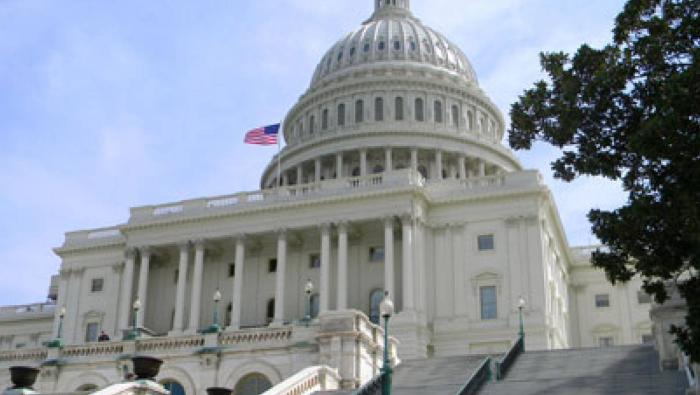The head of the Middle East and North Africa Business Aviation Association (MEBAA) believes that a division of responsibility with the African Business Aviation Association (AfBAA) over representation in Africa, with one acting on behalf of North Africa and the other the sub-Saharan region, could benefit the business aviation industry’s future development.
“Honestly speaking, that would be a smart way forward,” MEBAA founding and executive chairman Ali Alnaqbi told AIN in Dubai last month. “We would like to have somebody to represent business aviation in Africa. Africa is big continent. Sub-Saharan Africa is not being represented in the business aviation community on the International Business Aviation Council (IBAC).”
For several years, both MEBAA and AfBAA have been seeking to become the primary representative for Africa’s fledgling bizav industry. “As of now we haven’t agreed on anything, but MEBAA is very much open to any positive discussion,” said Alnaqbi.
Having founded MEBAA in 2006, Alnaqbi was elected vice president of IBAC’s governing board to serve a three-year term beginning January 2017. The IBAC governing board serves business aviation across the globe and, in addition to directing the council, is involved in all ICAO forums that affect business aviation.
“MEBAA received IBAC approval almost immediately after its inception, when Alnaqbi announced his intention to unite the business aviation community in the Middle East and North Africa under a single banner representing 25 counties throughout the region,” MEBAA said in announcing the appointment.
“For us, there is no issue at all in having AfBAA as part of IBAC. There are the small representative issues, but [these] could be solved. We would welcome the initiative. So far, we haven’t received any [new] request [from AfBAA] to join IBAC,” Alnaqbi said.
Commenting on potential negotiations with AfBAA, he said: “I haven’t heard anything. I haven’t sat with AfBAA for three years on the matter of [their] joining IBAC. The council is open to anybody. We welcome anyone who wants to [participate], but we have criteria that have to be met. As of today, MEBAA is official representative of North Africa and the Middle East to IBAC. That is the situation now. I don’t have any other comment.”
Nonetheless, MEBAA expects business aviation across the region to continue to grow in 2017. “We are still at the beginning of the whole business aviation [phenomenon] as a regional platform. Europe has been a mature market, as has the U.S.,” said Alnaqbi.
“In the Middle East and North Africa, there is huge growth potential. If you look at Dubai in the past decade, many companies joined the market,” Alnaqbi stated. “It is going in the right direction from MEBAA’s perspective. There is growth in membership. Companies that were with us, but struggled, are now rejoining us. That’s another sign of a positive market.”
Companies providing new FBOs or other facilities to help promote bizav in Dubai would be welcome, he said. He expects additional terminals to be required on top of the VIP Terminal at the Dubai World Central (DWC) complex’s Al Maktoum International Airport, which now houses Jetex Flight Support and Falcon Aviation, as the trend towards standalone operations continues. “Companies do not want to be limited to a small facility. Some want to build their own hangars and FBOs. More terminals will be needed,” said Alnaqbi.
Despite residing in a very presentable temporary facility today, ExecuJet told AIN last year that it was planning a new FBO and MRO complex at DWC, due to be completed by 2018. Jet Aviation, which is now using DC Aviation Al Futtaim’s facilities at DWC, could also opt for a standalone site in future, while XJet’s plans, which were initially thought to include one of the four slots at the DWC VIP Terminal, remain unclear.
Alnaqbi also commended the establishment of a helicopter service between DWC and Dubai by Falcon Aviation. “[Bizav passengers] always needed to be able to commute to the city and [existing] airport quickly. Helicopter services are growing in the UAE from a tourism point of view. I would love to see growth on the business aviation front. I think [Falcon’s service] will grow and that heli-services will be needed by VIPs coming in for quick meetings,” he said.
Efforts by MEBAA to tackle unauthorized incursions into the Gulf charter market by European operators are continuing. “We are working very closely with the UAE General Civil Aviation Authority to develop a procedure to reduce illegal operations,” explained Alnaqbi. “Many foreign-registered aircraft are coming in to take passengers from here. We want to protect our operators in Dubai and the UAE.”
Separately, International Standard for Business Aviation Operations (IS-BAO) and IS-BAH (Handling) workshops will take place on September 9 and 10, the eve of the inaugural MEBAA Marrakech show, taking place September 12-13 in Morocco. A business aviation conference, conducted in English, will take place September 11.
As expected, Alnaqbi said the 2018 MEBAA Show in Dubai will be going ahead as usual. “Last year’s event was a great show,” he commented. “We had more than 9,000 visitors, with many new faces that we’ve never seen before in VIP, including princes, sheikhs and businessmen. The show saw many new people, companies, and countries. The size of the show is also growing. It is very well established, and saw 15 percent growth on 2014. That’s very good. We are already set for the show in 2018 in Dubai.”
“The show plays a very important role for bizav here, and is one of three [global] shows that you must attend if you don’t want to miss the launch of new projects, with deals happening and opportunities to meet the buyers themselves,” he added. “That’s what we provide our industry. We expect another 15 percent growth [in the 2018 show], despite the situation the market faces. This is our plan: 12-15 percent growth.”







